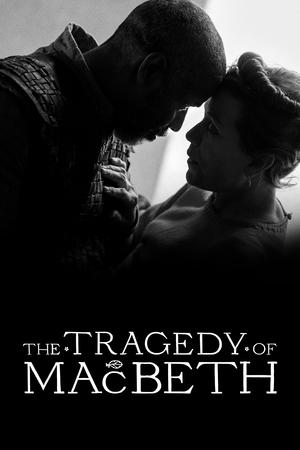
The Tragedy of Macbeth
The Tragedy of Macbeth is so damn good I’m not even going to question the logic, or lack thereof, of an African-American eleventh-century Scottish nobleman. Then again, Laurence Olivier and Orson Welles both played Othello, and if Denzel Washington isn’t in the same league as those two, he’s as close as any living actor could be. Like Welles, Washington projects an authoritative screen presence that successfully challenges our expectations and perceptions of the character’s appearance, while satisfying its psychological requirements. The actor, a master of juggling physical power with mental instability (cf. Training Day; impeccably illustrated here in a scene where, emboldened by the prophecy that “none born of woman shall harm Macbeth,” he confronts, unarmed, a sword-wielding soldier and gets the best of him), inhabits, or rather is inhabited by Macbeth’s madness so completely that the question of skin color becomes irrelevant. And Frances McDormand, who has as of late become something of a cross between Forrest Gump and a pit bull, was simply born for the role of Lady Macbeth; when she asks the “spirits that attend mortal thoughts” to de-sexualize her, it’s not hard to believe that the request has been immediately granted. Arguably no other actress could credibly impose her will on Washington, as when she tells him that “My hands are your color [i.e., red with King Duncan’s blood], but I would be ashamed to wear such a white heart” (a phrase which, given the circumstances, takes on a whole new dimension). At the same time, McDormand can summon a world of fragile vulnerability with a single look. Director Joel Coen, who adapted Shakespeare’s play himself, knows the words and the music. The filmmaker deserves a lot of credit for not modernizing the material (which may or may not have anything or everything to do with his brother’s conspicuous absence); he and Ethan have made a career of being iconoclasts, but Macbeth demands reverence, and this is exactly what Coen brings it. His fidelity to the text (speaks volumes of his artistic integrity that he left the line “liver of blaspheming Jew” intact), Bruno Delbonnel’s superb black and white cinematography, the lighting, the compositions, the costumes by Mary Zophres, the production design by Stefan Dechant, absolutely everything denotes an absolute devotion to the Bard’s vision. Even its accessible 105-minute length — to put it in perspective, Kenneth Branagh’s Hamlet is 242 minutes long (and worth every minute) — is not a commercial concession (Macbeth is one of Shakespeare’s shortest plays). Coen does not settle for standing on the shoulders of giants, though (the cyclopean set seems inspired by Welles’s 1948 version, and Dunsinane looks every bit the impregnable fortress it’s meant to be); the universal and timeless words of the original author are matched by the director’s singular visual sensibility — of which one of my favorite examples is the “Is this a dagger I see before me?” soliloquy, cleverly shot as Macbeth traverses a corridor leading to Duncan’s room, the door handle shaped like a dagger. The Three Witches are another stylistic triumph, but then I could say that of the entire film, which has the potential to challenge Polanski’s version as the ultimate cinematic Macbeth.
